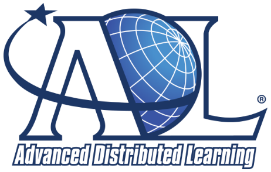A few months ago, I started a monthly series called “Wide World of Standards” as a part of the blog and MedBiquitous Community Connection newsletter. There are a lot of good reasons to do this. The thing that struck me when I assumed the helm for MedBiquitous is that there is a lot more occurring in the world of data standards than most people can keep track of if it is not their primary role.
Sometimes I feel as if it is self-serving to say that people should care about data standards, but I have felt this way about the subject for several years now. I do not often tell this story but the reason that I started to work in educational technology is that I was aware of the systemic inability to utilize data from the learning context in the workplace. If I could help develop tools and techniques for improving patient care by enhancing the transition from education to healthcare that would be my dream job. While at the University of Michigan I began to pursue that dream by modernizing our learner portfolio and utilizing the MedBiquitous standards as a guide.
The ability to move data from one context to the next without having to create a new process for each transaction is a critical capability of our digital tools and platforms. To quote the T3 Innovation Network report titled Public-Private Standards Development and Use by Government For the Talent Marketplace, “Data standards make it easier to publish, share, and use data. They can boost data quality, open new markets, lead to the creation of innovative tools and services, lower costs for data production and use, support policy implementation, encourage collaboration, and more.”
While I participated in MedBiquitous for several years prior to my becoming the program’s director, I was always surprised by the number of colleagues across the country that were only vaguely aware of the importance of the work being done by this program. In fact, they may be surprised to learn about all of the competing and complementary standards that exist in education and workforce data. So, the question I had to ask myself: what can I do to help bridge this knowledge gap?
“Wide World of Standards” will continue to be a part of the monthly newsletter, and, in addition I will provide an expanded, quarterly summary for the MedBiquitous blog with what you need to know and where you can go to find more information.
This month’s summary highlights all of the open data standards organizations that I have mentioned over previous months. I have organized them from the broadest, international applicability down to the most focused efforts. To learn about other open education data standards please refer to edmatrix.org.
IEEE Learning Technology Standards Committee (LTSC)

Who is this organization?
Chartered by the Institute of Electrical and Electronics Engineers (IEEE) Computer Society Standards Activity Board, the LTSC works to develop internationally accredited technical standards, recommended practices, and guides to learning technology. In addition to standards developed directly, the LTSC also manages standardization of specifications developed by other organizations. (Description courtesy of edmatrix.org)
What are their activities of interest?
There are several active efforts for LTSC standards, including:
- Standards on child and student data governance methodologies
- Federated Machine Learning
- Interoperable Learner Records
- Learning Object Metadata 2.0
- Conceptual Model for Learning Technology Systems
- Augmented Reality Learning Experience Model
- Secure and Trusted Learning Systems
- Mobile Learning Technology
- xAPI
- SCORM
- Competencies
- Learning Engineering (Instructional Design)
- Adaptive Instructional Systems
How do their activities apply to the health professions?
Most of the ongoing efforts by LTSC are either directly related to existing MedBiquitous standards, or would support teaching, learning, and credentialing in the health professions if adapted by MedBiquitous and the community. Because IEEE is an international and respected organization, the adoption of their standards is commonplace.
Why should I be aware of this?
The voice of the health professions is very small in current conversations (usually just me, sometimes a vendor that supports the health professions) and that representation is needed now more than ever to ensure the health professions have their needs met and are not presented with “one size fits most” solutions.
Where can I learn more?
You can learn more about LTSC here.
T3 Innovation Network

Who is this organization?
In early 2018, the U.S. Chamber of Commerce Foundation and Lumina Foundation launched the T3 Innovation Network to bring businesses, postsecondary institutions, technical standards organizations, and human resource professionals and their technology vendors together to explore emerging Web 3.0 technologies in an increasingly open and decentralized public-private data ecosystem. (Description from www.uschamberfoundation.org)
What are their activities of interest?
The goals of the T3 Innovation Network are:
- Define what a competency-based lifelong learner record should be so that all learning counts, no matter where it takes place.
- Modernize technology and advance data standards to achieve seamless sharing of data throughout a person’s education and career pathway.
- Empower individuals with a validated record of their skills and competencies in a way that all employers can understand.
How do their activities apply to the health professions?
Lifelong learner records will be key to credentialing and certification in the near to midterm future. Records from all levels of education need to be compatible with HR and other employment systems of record.
Why should I be aware of this?
While the work of other data standards organizations can speak to other levels of education or HR data, MedBiquitous represents the health professions and their data needs. The activities of the health professions, let alone the terminology used, are unique enough that we must actively participate to make our requirements known.
Please feel free to contact me (jpatton@aamc.org) if there is a requirement you feel should be voiced to the network.
Where can I learn more?
You can learn more about the T3 Innovation Network here.
ADL TLA

Who is this organization?
The Advanced Distributed Learning Initiative (ADL) is a government program that seeks to facilitate interoperability and promote best practices for using distributed learning to provide high-quality education, training, an informal learning tailored to individual needs. Many specifications developed by ADL are standardized by the IEEE LTSC. Initially exclusive to the U.S. Department of Defense, ADL also serves the entire Federal workforce and global partners. (Description courtesy of edmatrix.org)
What are their activities of interest?
The Total Learning Architecture (TLA) project “includes a set of technical specifications, standards, and policy guidance that define a uniform approach for integrating current and emerging learning technologies into a learning services ecosystem. Within this ecosystem, multiple services and learning opportunities (of various modalities and points of delivery) can be managed in an integrated, interoperable ‘plug and play’ environment.
Once matured and implemented, the TLA will enable personalized, data-driven, and technology-enabled lifelong learning across the DoD, other Federal Government agencies, and beyond.” (www.adlnet.gov)
How do their activities apply to the health professions?
ADL is most known for SCORM and its successor, xAPI. The current TLA project is of interest because there are many parallels to the work being done for DoD and the Federal government at large. The health professions can learn many lessons.
Why should I be aware of this?
The work that ADL/TLA is doing with IEEE will impact the outcomes of those standards development projects. MedBiquitous can have a similar impact on the IEEE efforts with your assistance and input.
Where can I learn more?
You can learn more about ADL/TLA here.
MedBiquitous

Who is this organization?
We are MedBiquitous! MedBiquitous is three offerings in one unique package:
- A community of health professions educators and technology innovators.
- A process to develop, approve, and disseminate health professions education data standards.
- A collection of open, health professions education data standards and technology guidelines.
What are their activities of interest?
MedBiquitous’ Participants are creating a learning infrastructure for advancing the health professions. Based on XML, Web services and other internet technologies, this infrastructure will weave together the many activities, organizations, and resources that support the ongoing education and improvement of healthcare professionals. Ultimately, this infrastructure will seamlessly support the learner in ways that will improve patient care and simplify the administrative work associated with lifelong learning and continuous improvement.
With these interoperable standards, educators will be better able to exchange educational content, track learner activities and profiles, and make healthcare education more accessible, measurable, and effective, thereby improving patient care.
How do their activities apply to the health professions?
MedBiquitous focuses on the health professions and collaborates and aligns with other education and work force data standards organizations to make integration and interoperability more obtainable.
Why should I be aware of this?
The work of MedBiquitous is to support the health professions, but we need your voice to make that possible. All of the health professions have a seat at the table and we welcome you with open arms.
Where can I learn more?
You can learn more about MedBiquitous here.
There is a myriad of education, teaching, learning and workforce data standards available. MedBiquitous focuses on developing technology standards that are specific to the health professions and promoting the use of other relevant open standards. (To learn more about open standards, please check out Open Stand).
We want to hear from you!
Would you like to contribute to the Wide World of Standards blog post series? The new MedBiquitous Research and Alignment Group has been tasked with maintaining our connection and collaboration with other standards efforts and investigating new technologies to explore. To join, please contact jpatton@aamc.org.

